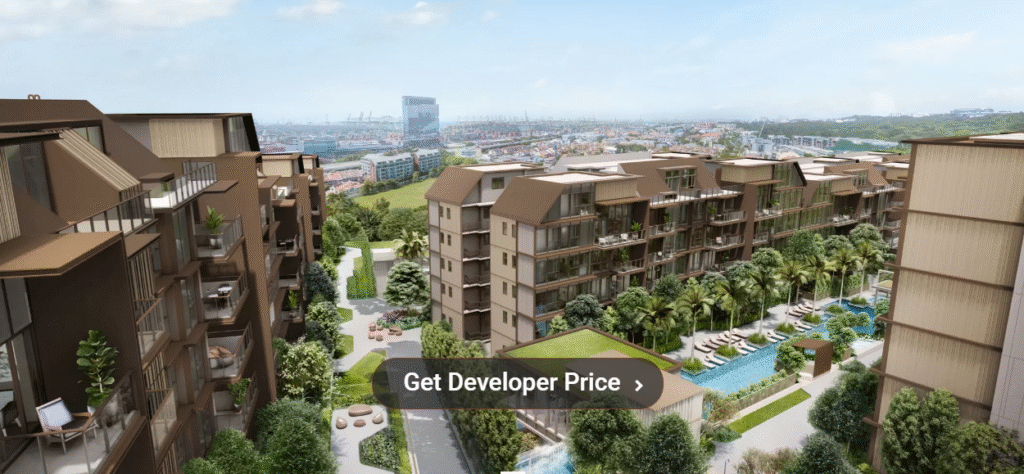SPC Flooring | SPC Flooring Pros and Cons
[ad_1]

In this post, we are going to give information about SPC Flooring Pros and Cons and what is SPC flooring. SPC flooring is excellent for high-traffic areas of the house. It is similar to luxury vinyl flooring.
SPC flooring meaning is Stone Plastic Composite (SPC) Flooring. This type of Luxury Vinyl Flooring is a wonderful, beautiful new type of luxury vinyl flooring. Which survives the hottest summers and cold winters in the most difficult conditions. So you can enjoy your Stone Plastic Composite (SPC) flooring for a long time.
There are many different flooring options to choose from when designing your home. Which is essential for the overall look of your space. There are several things to keep in mind when choosing SPC flooring for your home. Let us understand it in detail.
What Is SPC Flooring?
SPC plank flooring is a premium type of LVT that is 100% waterproof. SPC flooring is a multi-layered floor plank. Which is made from a mixture of stone powder and PVC plastic.
SPC rigid core flooring is an incredibly durable and resistant material that does not expand and shrink with changes in different seasons. Installation of SPC flooring is faster than conventional tiles.
SPC plank flooring is excellent for high-traffic areas of the house. It is similar to luxury vinyl flooring. The top layer of SPC flooring has a protective layer. This type of flooring is made of a mixture of limestone, polyvinyl chloride, and stabilizing agents.
This type of flooring is ideal for kitchens, basements, bathrooms, laundry rooms, and other wet areas. Its top layer is resistant to scratches and stains. SPC vinyl plank flooring is mainly suitable for both commercial and residential spaces.
SPC Flooring Costs
SPC flooring costs can be around $ 3.5 to $ 7.0 depending on the different manufacturers. Even manufacturers like Coretec can have more than $ 8.00 per square foot. Most people pay around SPC flooring price per square foot $1,700 for 200 sq. ft.
The average cost for an SPC flooring installation cost can range from $ 1,200 to $ 2,000, with a 20ml SPC installed with a wood-grain print pattern costing about $ 1,700 per 200 square feet
SPC Flooring Pros and Cons

We have discussed below some of the SPC Flooring Pros and Cons. SPC waterproof flooring, Easy to Install, and others.
SPC Flooring Pros
Here are some SPC Flooring Pros:
- Easy to Install: Stone polymer composite flooring is very easy to install. So it is very much preferred. No nails or glue is required for its installation. Because they are designed with interlocking grooves. Thus, SPC flooring can be easily installed on any hard surface.
- Water-Resistant: SPC waterproof flooring, Therefore advisable to choose for the basement, laundry room, bathroom, and kitchen. In addition, the material is free of moisture-related expansion or shrinkage.
- Very Durable: SPC flooring is more durable than other types of flooring. Manufacturers of this type of flooring offer a 15-year warranty. It can last up to 20 years if you do regular cleaning and proper maintenance.
- Budget-Friendly: In general, SPC flooring cost is cheaper than hardwood flooring and its installation cost is also cheaper. However, it does provide a natural wood effect to your floor surface.
- Easy To Clean And Maintain: SPC flooring is easy to clean periodically and wet the mop. This type of flooring can easily replace any damaged pieces, each individual piece without removing the entire flooring. In addition, it is much easier to maintain compared to other types of flooring.
- Stain Resistant: SPC flooring is a very popular product for stain resistance. The surface of those printed SPC tiles acts as a protective barrier against spillage and stains.
- Different Style And Selections Options: This type of flooring gives you different options for different patterns and layouts for your floor. You can also easily find different flooring options in the nearest store.
- Easy to Cut: SPC panels do not require special power tools like materials like wood, tiles, and stone. So SPC flooring can be easily cut as per requirement.
- Suitable Option: In residential construction, it is advisable to install SPC flooring in hallways, kitchens, and bathrooms as its surface is durable.
SPC Flooring Cons
Here are some SPC flooring disadvantages
- The subfloor should be leveled, and free of dust and dirt before its installation. This process requires some time and effort to get the best results. If the subfloor surface is not properly prepared, any particles trapped below can damage the SPC flooring surface.
- SPC flooring is known as a luxury product. It is more expansive than laminate or other composite vinyl flooring products.
- It is not suitable for use in the outdoor area.
- SPC flooring has high durability. Some low-quality SPC flooring may be damaged. This type of damaged flooring is therefore difficult to repair. The only option is to change a specific part of it. So you should consider SPC flooring before choosing tile or plank.
- SPC flooring is not used in high heat or fire hazardous areas such as commercial kitchens. Because when it burns it will release a lot of odors and toxic chemicals into the air
- This type of flooring has a significant advantage in mitigating and eliminating unwanted noise. It does not get 100% benefit. But it does control a lot of noise.
WPC Vs SPC
Many homeowners are choosing a stylish and relatively inexpensive option to give their home a new look. There are two main types of hardcore flooring.: SPC vinyl flooring and WPC vinyl flooring.
1. Thickness
Wood-plastic composite flooring material has a denser core than SPC flooring material. Plank thickness for WPC flooring is about 5.5 to 8 millimeters, while plank thickness for SPC flooring is between 3.2 and 7 millimeters.
2. Foot Feel
WPC flooring material has a denser core than SPC flooring so it feels more stable and padded when walking on it.
3. Sound Insulation
The thick core of the WPC floor in sound insulation helps absorb sound, so it is quiet when walking on the floor.
4. Durability
The durability of WPC flooring is better than SPC flooring. But since WPC flooring material is dense, it can withstand weight loss.
SPC Vinyl Plank or Tile Construction
Like most LVPs and LVTs, SPC cores are primarily composed of 5 layers. Some brands have 4 layers. So some are made up of 6 layers. But for home use usually, 5-level layered SPC flooring is used.
1. Underlayment
Its underlayment is made of cork or rubber material. It is attached to each tile for your flooring so that you eliminate the need to purchase additional underlayment. This underlayment blocks the cold and moisture coming from under the flooring
2. Backing Layer
A baking layer is placed on top of the underlayment. Which is a thin paper-like material. Then another layer is mounted on it.
If you buy an SPC plank without underlayment, you will get a backing layer at the bottom. Different baking layer materials are used depending on the underlayment.
3. Core Layer
The core layer is composed of SPC. It is the thickest part of the whole layer.
4. Vinyl and Image Layer
In some brands, most of the images are printed directly on the vinyl layer. It also has a separate layer for images in some brands.
In this layer wood grain patterns, stone-look vinyl or random patterns, or high-quality brand high-resolution images can be obtained.
5. Wear Layer
A protective layer is provided on top of this type of plank. SPC rigid core waterproof flooring adds durability to the floor surface. Which protects the floor surface from scratches and image layers.
The thickness of the layer adds durability to it. But with SPC vinyl the protective layer is 8 to 12 mil.
SPC Flooring Brands
Almost every vinyl plank manufacturer listed below has SPC options available. But the quality, durability, or price of each varies.
- COREtec Luxury Vinyl with SPC
- Shaw Flooring Premium SPC Vinyl
- Mohawk SPC Rigid Core Vinyl
- InHaus LVP/LVT with SPC Core
- Phenix Luxury Vinyl Waterproof SPC
Like this post? Share it with your friends!
Suggested Read –
Frequently Asked Questions (FAQ)
SPC Flooring
SPC Tile flooring is Stone Plastic Composite (SPC) Flooring. This type of Luxury Vinyl Flooring is a wonderful, beautiful new type of luxury vinyl flooring. Which survives the hottest summers and cold winters in the most difficult conditions. So you can enjoy your Stone Plastic Composite (SPC) flooring for a long time.
SPC Flooring Pros and Cons
SPC Flooring Pros
- Easy to Install:
- Water-Resistant:
- Very Durable:
- Budget-Friendly:
- Easy To Clean And Maintain:
- Stain Resistant:
- Different Style And Selections Options
- Easy to Cut:
- Suitable Option
SPC Flooring Cons
- The subfloor should be leveled, and free of dust and dirt before its installation. This process requires some time and effort to get the best results. If the subfloor surface is not properly prepared, any particles trapped below can damage the SPC flooring surface.
- SPC flooring is known as a luxury product. It is more expansive than laminate or other vinyl flooring products.
- It is not suitable for use in the outdoor area.
Which Is Better WPC vs SPC Flooring?
Wood plastic composite flooring material has a denser core than SPC flooring material. Plank thickness for WPC flooring is about 5.5 to 8 millimeters, while plank thickness for SPC flooring is between 3.2 and 7 millimeters.
Wood polymer composite flooring material has a denser core than SPC flooring so it feels more stable and padded when walking on it.
[ad_2]
Source link







:max_bytes(150000):strip_icc()/GettyImages-559025517-2000-b3bece30a9074ec3958a4d39f69f2a79.jpg)
